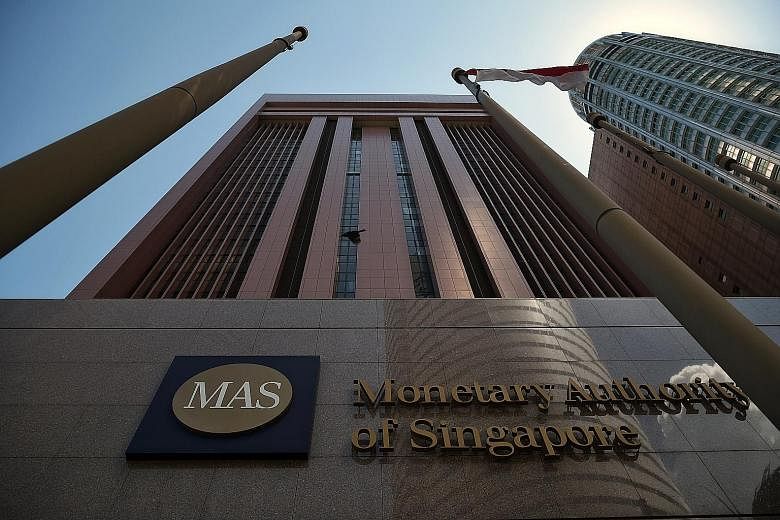Singapore's reserves play a critical role in stabilising the economy during crises and shocks and in providing a steady steam of revenue, and any decision on the use of the strategic assets is not taken lightly, Deputy Prime Minister Heng Swee Keat said yesterday.
"We have inherited a strategic asset for the long-term survival and success of Singapore. Protect it, nurture it and never squander it."
Rounding up the debate on the Budget, he said that by staying true to values of prudence and stewardship, Singapore had built up significant reserves - and the confidence to deal with any crisis in its path.
Past reserves have been drawn on to deal with two crises so far - $4 billion in 2009 to deal with the global financial crisis, and up to $53.7 billion last year and this year to respond to the Covid-19 pandemic.
The funds serve as a bulwark against extraordinary crises, Mr Heng said as he outlined three key roles of the reserves.
The other two roles are: As an endowment fund, providing a key stream of revenue to supplement the annual Budget through the Net Investment Returns Contribution (NIRC) framework; and to provide a buffer against shocks and attacks on Singapore's financial system.
Mr Heng said that under Singapore's "two-key" system, the President has discretionary powers to withhold assent to proposed expenditure that may lead to a draw on past reserves. "It is public information that, under our Constitution, the President has access to information about the size of reserves."
Over three days, MPs such as Mr Alex Yam (Marsiling-Yew Tee GRC) and Mr Liang Eng Hwa (Bukit Panjang) cautioned against dipping too readily into the reserves, while Non-Constituency MP (NCMP) Leong Mun Wai suggested tapping more through the NIRC.
Mr Leong's fellow Progress Singapore Party NCMP Hazel Poa asked the Government to reveal the size of the reserves.
Mr Heng said this was akin to laying bare Singapore's defence plan - and would diminish the reserves' value as a strategic defence. "No responsible leader would do so."
Citing the explanation of Mr Saktiandi Supaat (Bishan-Toa Payoh GRC) on Thursday about Singapore's vulnerability to currency speculation and large capital outflows, Mr Heng reiterated that it would not be in Singapore's interest to disclose the figure.
He also said he was "very alarmed" by Associate Professor Jamus Lim's (Sengkang GRC) immediate response to Mr Saktiandi.
Noting that the Workers' Party MP had cited "theoretical" literature that speculation could be stabilising, Mr Heng said: "I would also point out that there are other academics who recognise that currency markets can be marked by massive instability."
He said most economists today acknowledge that market-driven short-term flows are fickle and volatile. The episode involving hedge fund manager George Soros taking on the Bank of England in 1992, by betting against the pound sterling and "dramatically" destroying the United Kingdom's monetary system, is a stark example.
"To put it simply, foreign exchange speculations have been and continue to be a threat to economies, especially small, open ones like ours," said Mr Heng.
Singapore, being a financial hub, had portfolio and banking-related flows that amounted to $294 billion last year, amid volatility in the global financial markets sparked by the pandemic, he noted. This represented 63 per cent of gross domestic product (GDP).
"MAS (Monetary Authority of Singapore) kept the Singapore dollar nominal exchange rate stable during this period, backed by the full power of our reserves, giving banks and businesses certainty to make decisions under very trying circumstances."
Mr Heng related his experience during the Asian financial crisis in the late 1990s, when he was principal private secretary to founding prime minister Lee Kuan Yew.
Mr Lee had been invited by several countries in the region to share his views, as the Singapore dollar, backed by the reserves, was relatively unscathed by the currency devaluation crisis.
"It was very painful to see how speculation and the currency volatilities that those countries faced were destroying businesses, big and small, and the lives of the men and women in these places," said Mr Heng.
He noted that the Singapore dollar is one of the most actively traded currencies in the world relative to the country's GDP. The currency's daily turnover is estimated at US$37 billion (S$49 billion) globally, or an annual turnover of US$9.5 trillion, far exceeding Singapore's nominal GDP of US$350 billion.
Compared with other countries, the exchange rate is far more important for Singapore, which is unique in its operation of an exchange rate-centred monetary policy, said Mr Heng.
As managing director of MAS during the global financial crisis that started in 2008, Mr Heng said, his team had to guard not just against the failures of banks, but also flights of capital and risks of speculation on the Singapore dollar.
As a board member of MAS now, he added, he wants to ensure that the authority can continue to effectively use Singapore's exchange rate to deliver price stability.
"As a practitioner at the front line, who tries my best to understand the intricacies of the system, I must caution Associate Professor Jamus Lim - let us not play with fire," said Mr Heng.
"This is about the lives of our people, not theoretical musings.
"And I urge all members of this House to focus the debate on the merits of the policies and programmes and how we can improve the lives of Singaporeans, instead of repeatedly focusing their attention on the size of the reserves."


